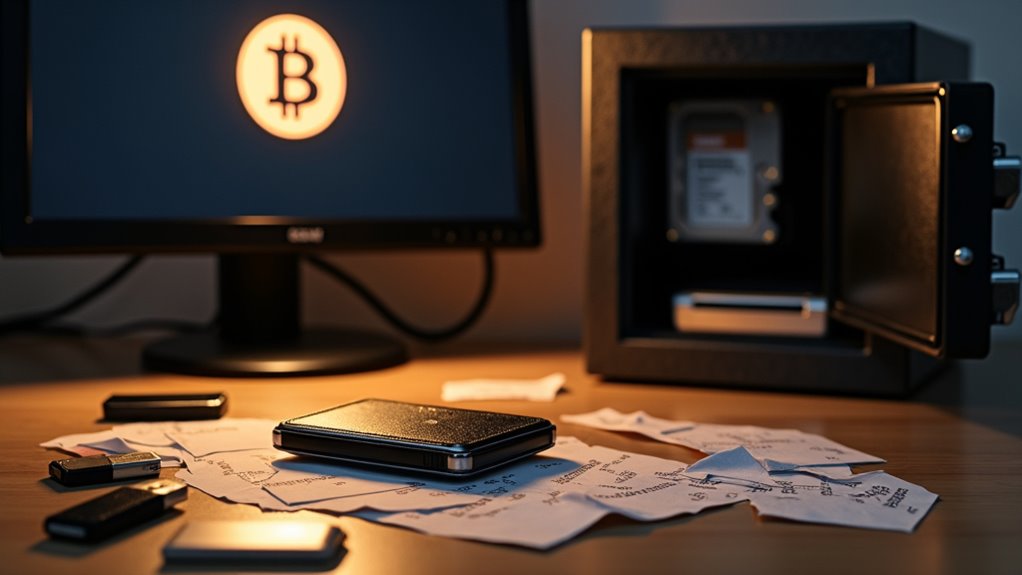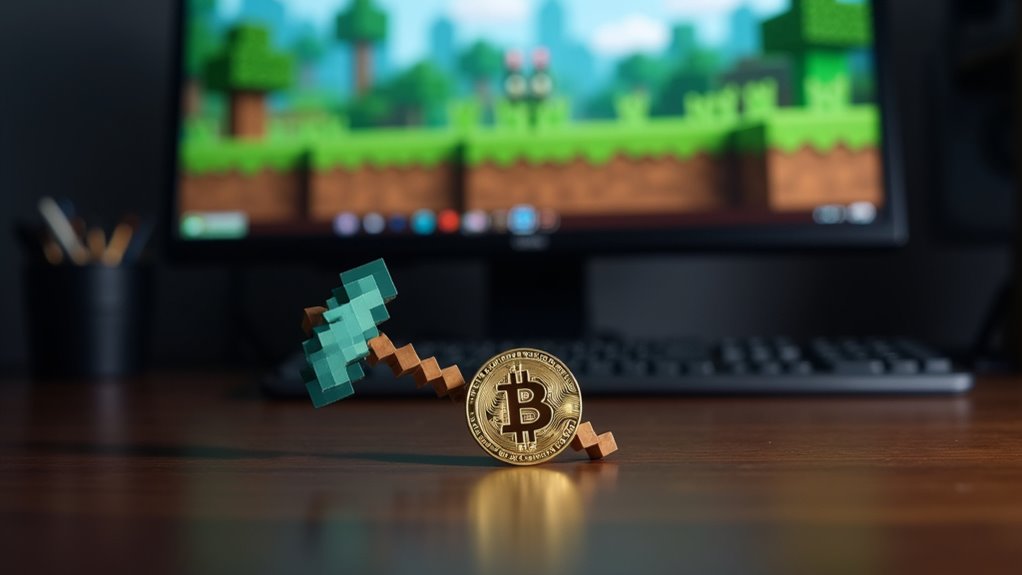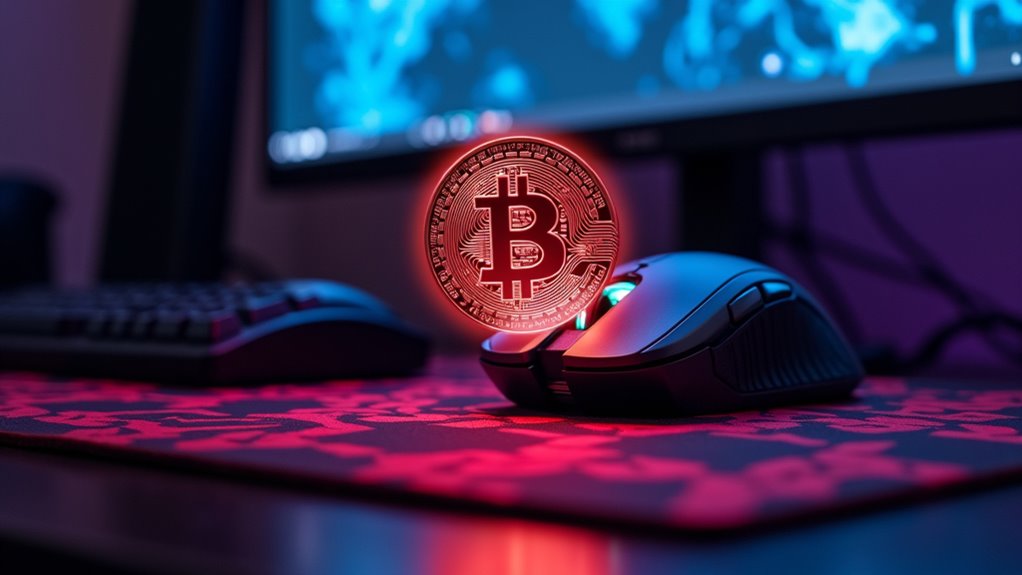Digital currency, aka bit money, is the next evolution cash – just without the paper and metal. It exists purely as computer code, using complex cryptography and blockchain technology to keep transactions secure and traceable. Unlike traditional money overseen by banks and governments, cryptocurrencies operate on decentralized networks where users connect directly. Sure, it’s volatile and a bit confusing, but this digital revolution is gradually reshaping how money works. The deeper story gets even more interesting.

Money is transforming, and digital currencies are leading the charge. Long gone are the days when you needed chilly, hard cash in your wallet. Welcome to the age of bits and bytes, where currency exists purely in electronic form. No physical coins, no paper bills – just digital transactions zipping through the internet at lightning speed. Some countries are even exploring central bank currencies to keep up with the digital revolution.
Welcome to money’s digital revolution, where physical cash takes a backseat to lightning-fast electronic transactions and virtual currencies.
Let’s be real: digital currencies, especially cryptocurrencies like Bitcoin, have turned the financial sphere on its head. They operate on something called blockchain, a fancy term for a decentralized network that keeps track of every single transaction. No banks needed. No middlemen taking their cut. Just pure peer-to-peer action, secured by complex mathematical problems that would make your high school algebra teacher’s head spin. While cryptocurrencies rely on blockchain, the distributed ledger technology has applications far beyond just digital money.
The whole process is pretty wild. Someone initiates a transaction, and it gets bundled into a block with other transactions. Miners – not the coal-covered kind, but computer whizzes with powerful machines – compete to solve cryptographic puzzles. Winner gets to add the block to the blockchain. Simple, right? Well, not precisely. The energy-intensive mining process has become a major environmental concern.
These digital currencies come with some serious perks. Want to send money across the globe? Done in seconds. Tired of hefty bank fees? Digital currencies often cost less. Plus, the whole system is transparent, thanks to blockchain technology. Every transaction is recorded, and everyone can see it. Try hiding that midnight shopping spree now.
But it’s not all sunshine and crypto-rainbows. Digital currencies are about as stable as a caffeinated squirrel – their prices bounce around like crazy. Hackers love targeting digital wallets, and good luck explaining to your grandma how cryptocurrency mining works. Plus, try buying groceries with Bitcoin. Most stores will look at you like you’re speaking Klingon.
The future of digital currency appears interesting, though. Technology keeps advancing, regulations are slowly catching up, and mainstream financial systems are starting to take notice. Whether we like it or not, digital currencies are here to stay. They’re changing how we think about money, one block at a time.
Frequently Asked Questions
How Can I Protect My Digital Wallet From Cybercriminals?
Digital wallets require multi-factor authentication, strong passwords, regular software updates, and cold storage backups. Users should avoid public networks, use reputable security software, and apply encrypted communication protocols for transactions.
What Happens to My Bit Money if the Internet Goes Down?
Cryptocurrency remains secure in offline wallets during internet outages. While transactions cannot be initiated without connectivity, stored funds stay safe. The blockchain network continues operating and syncs once internet access recommences.
Can Governments Track My Bit Money Transactions?
Yes, governments can track cryptocurrency transactions through blockchain analysis, exchange reporting requirements, and collaboration with specialized firms. All transactions are recorded on public ledgers, making them traceable by regulatory authorities.
Why Do Bit Money Values Fluctuate so Dramatically?
Digital currency values fluctuate dramatically due to market sentiment, limited supply mechanisms, regulatory developments, and macroeconomic factors. News events, investor behavior, and global economic conditions can trigger rapid price movements.
Which Countries Have Banned or Restricted Bit Money Trading?
Several countries have completely banned cryptocurrency trading, including China, Nepal, Afghanistan, Bangladesh, and Algeria. Others like Egypt, Morocco, and Ecuador maintain strict restrictions while monitoring digital currency activities within their borders.









